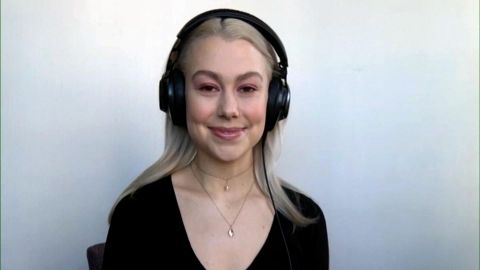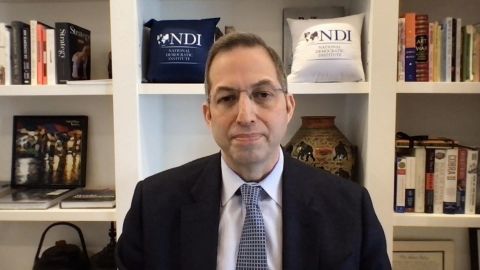Read Transcript EXPAND
CHRISTIANE AMANPOUR: Amazing. What is it like being a woman in this business? And I ask because a lot of you women, obviously, have been nominated for Grammys. The top 10 Billboard, I think, has most of the — of those in the top 10 are women, more than half, like Taylor Swift, Lady Gaga, The Chicks. Are women — do you think your generation is benefiting from women being taken much more seriously and being rewarded?
PHOEBE BRIDGERS, SINGER/SONGWRITER: Definitely. I think there’s still a big issue just on an administrative level. Like, they put a lot of women and people of color in the performance role, and then you go and meet with a label, and it’s all white men who work there. So, I’d love to see more producers and directors and A&Rs who are women. I think it’s really important. I think — I mean, it’s just advantageous for companies too. It’s right in the palm of capitalism. If you don’t know who you’re talking to, then you won’t be able to run a company appropriately. So, I’d love to see more boring jobs go to women, you know?
(LAUGHTER)
AMANPOUR: Yes. You have also come across your own MeToo moments. You have just tweeted about Marilyn Manson, who’s had allegations. Your song “Motion Sickness’ from your previous album got something like nearly 70 million Spotify hits or how — whatever you call…
(LAUGHTER)
AMANPOUR: Download, hits, I’m not sure what it is. But, nonetheless, it got that many. And the lyrics are pretty — they tell your story. And we’re going to play a few now. We’re going to play a little bit of it.
(BEGIN VIDEO CLIP)
(MUSIC)
(END VIDEO CLIP)
AMANPOUR: Obviously, it’s about a personal experience. But I wonder whether you think that the music industry now is doing enough to hold those kinds of people accountable, because your industry is rife with stories of what’s happened to women, with very little accountability.
BRIDGERS: Yes, I think it’s never enough. I think it’s very funny that Marilyn Manson’s label decided to drop him right when the story went public. And people have just known about it for so long. I find that very annoying. I think it’s a lot of performative — performative activism, basically. I think people should take more responsibility internally. It doesn’t matter how many people know about it. You should look into things like you’re the FBI. But when people make people money, it’s really hard, I know. It’s really hard to walk away from that. But I think more people should.
About This Episode EXPAND
Former ambassador Derek Mitchell discusses how the U.S. can help preserve democracy in Myanmar. Constitutional law expert Noah Feldman examines the legal arguments at play in the impeachment trial. Musician Phoebe Bridgers explains the inspiration for the album she released in lockdown. New Yorker writer Ronana Farrow discusses his investigation into the January 6 Capitol insurrection.
LEARN MORE



